Sometimes life can be tiresome – one minute you’re up and the next second, you’re back down. Emotional exhaustion is when emotions become “too much” and you feel drained.
However we experience stress and fatigue almost every day, so what makes this condition different from the daily stress of life? Let’s take a look at emotional exhaustion vs burnout, the signs, and how to deal with it.
What is Emotional Exhaustion?
It is a chronic state of physical and emotional depletion with a feeling of being emotionally overextended and can arise when someone experiences a period of excessive stress in their work or personal life. This can impact a person’s everyday life, relationships, and behavior.
Emotional exhaustion is often associated with Burnout is a specific kind of work-related stress that includes feelings of physical or emotional tiredness, a sense of diminished accomplishment, and a loss of one’s sense of self.
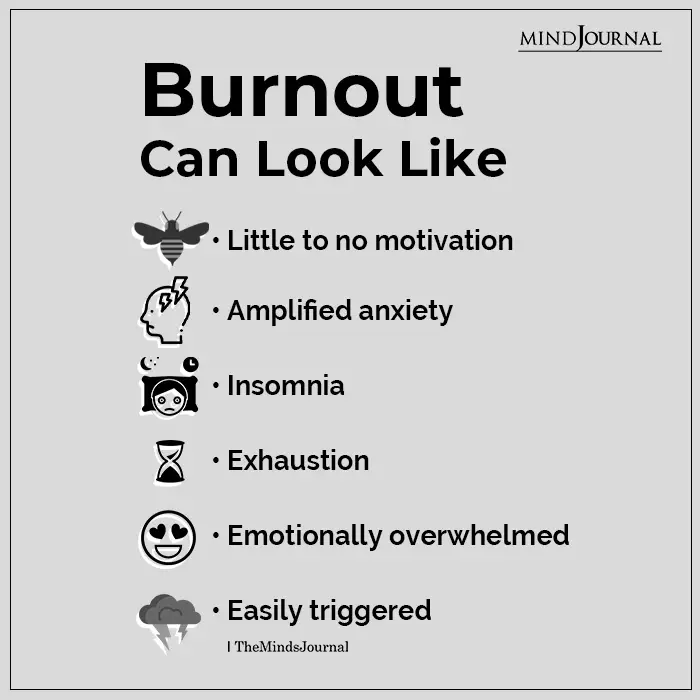
Are you experiencing daily stress? Well, over time, chronic stress can take a toll on the body. So it’s important to learn what causes constant stress, whether it’s personal, family, or related to work.
Related: 7 Signs You Are Feeling Mental Strain And What To Do
What causes emotional burnout or exhaustion?
Individuals may experience emotional exhaustion for a variety of reasons. One individual may find something stressful, whereas another may find it entirely tolerable. However, there are a few common causes that can be taken into account.
- Lack of social support
- Being a caregiver
- Intense pressure for education
- Working long hours or low job satisfaction
- Childbirth or raising
- Financial loss or poverty
- Homelessness
- High-pressure jobs
- Divorce or separation
- Death of a loved one
- Chronic illness or injury
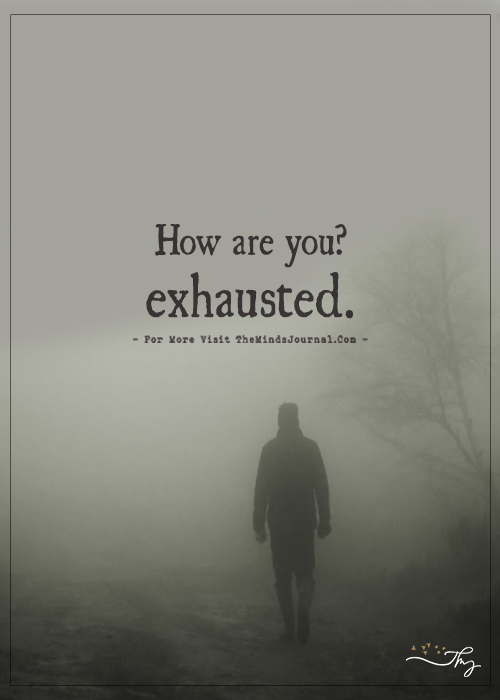
We often think that emotional exhaustion sneaks up on us without much notice. However, when burnout is likely to occur, our bodies alert us.
Many people experience stress, which causes quite a few undesirable emotional exhaustion symptoms to manifest in them. These signs might interfere with your daily routine and have an impact on your relationships and productivity.
If you experience some of these symptoms of emotional exhaustion, it may indicate that you need a break.
8 Signs Of Emotional Exhaustion
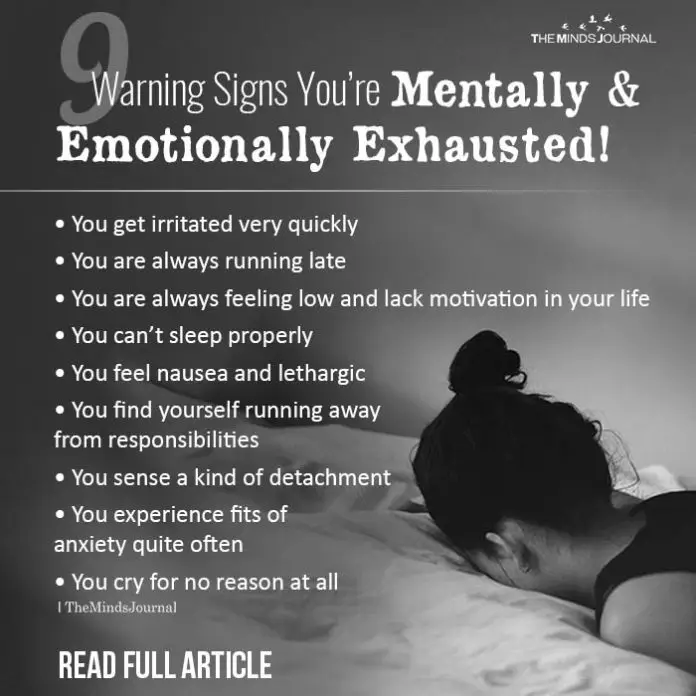
1. You get irritated or angry easily
Mental and emotional fatigue can put you in a bad mood. The slightest things could irritate you, and you might snap at people more frequently. When you’re emotionally exhausted, it’s more difficult to keep your emotions under control.
You are surrounded by negativity, and as the days pass, you begin to lose hope. Unfortunately, this could lead you to vent your anger on those who are closest to you and who most likely don’t deserve it.
2. You’re low on productivity and lack motivation in life
Productivity ranges for everyone. However, chronic stress can make it very difficult to focus and depletes your motivation. Even small things can be intimidating. You might even start to get easily sidetracked or start missing deadlines.
3. You constantly worry or feel anxious.
Your sympathetic nervous system is activated by emotional and mental exhaustion. You are now in “fight or flight.” Anxiety serves as a warning that something is wrong. You can start to worry or feel concerned all the time if you’re dealing with emotional exhaustion all the time.
4. You don’t sleep properly.
It’s more difficult to settle your mind and go to sleep when you’re experiencing extreme weariness. According to research, folks who have occupations with high “cognitive workloads” experience more sleeplessness symptoms than those who don’t. Sleep deprivation can worsen mental weariness.
5. You feel detached from your surroundings.
You could not feel energetic or experience a sense of slow motion. You experience numbness, and this disinterest might make it challenging to complete tasks at work or carry out daily activities.
6. You cry for no reason at all.
We fundamentally lose the ability to handle difficult events when we are physically and emotionally worn out, and everyday stress is amplified. You may have found yourself crying in front of coworkers, acquaintances, or even total strangers, at some point during your life.
7. You start making unhealthy choices.
You might start using alcohol or drugs more frequently than usual. For those who already have a substance abuse problem, emotional exhaustion can be even more damaging. The reason for this, according to experts, is that drug addiction alters brain regions involved in stress management and impulse control.
8. Your eating habits begin to change
Your appetite might be impacted by stress in various ways. You might graze more frequently than usual and overlook your meals. Additionally, stress can cause you to crave fatty, salty, or sweet foods even when you’re not even hungry.
Related: 40+ Mentally And Emotionally Exhausted Quotes For The Times You Stressed
How To Treat Emotional Exhaustion?
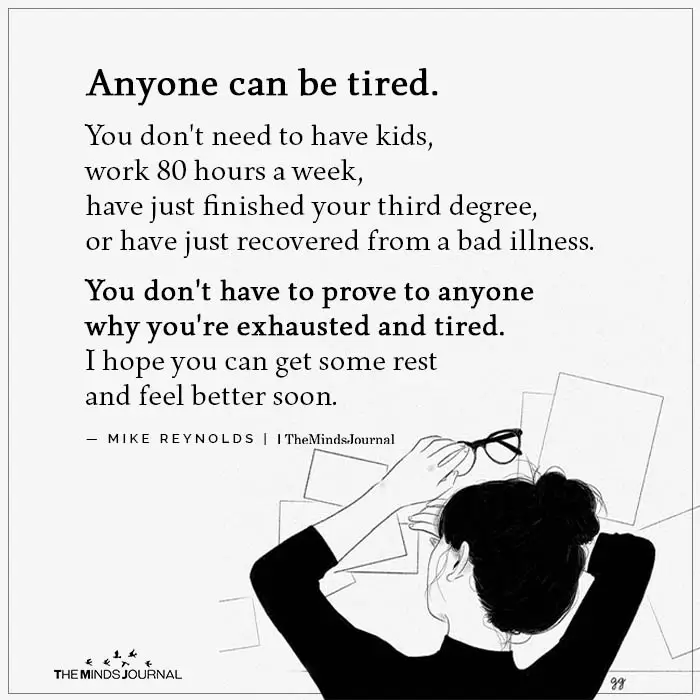
You may need to make minor changes in your lifestyle to reduce the effects of emotional exhaustion. Try the following tips to deal with emotional burnout.
- Practicing mindfulness
To heal emotional exhaustion, you can practice mindfulness. These can help you get out of your emotional rut since they are scientifically proven to alleviate tension and anxiety. There are several techniques to practice mindfulness, including yoga, meditation, breathing exercises, taking walks, and maintaining a journal in which to record your emotions.
- Connect with a trusted friend
Talking to a friend or family is the best way to get over emotional exhaustion. They can be anyone you trust and who can listen to you without judging you.
- Seek help from a mental health professional
To alleviate emotional exhaustion, it’s crucial to get professional assistance. Therapists employ applied relaxation methods and cognitive behavioral therapy (CBT), sometimes referred to as talk therapy.
Related: How To Recover From Burnout When You Feel Unmotivated
If you find yourself suffering from physical and emotional exhaustion, know that is a treatable condition. Eat a healthy diet and get enough sleep to improve your life in small ways.
Frequently Asked Questions (FAQs)
How to help someone who is emotionally exhausted?
If someone is emotionally exhausted, try to validate their emotions. Let them know that they are not alone and that sharing is an important step to healing.
How long does emotional exhaustion last?
If you find yourself suffering from physical and emotional exhaustion, know that is a treatable condition. All you need to do is rest your mind and body, eat a healthy diet, and get enough sleep to improve your life in small ways.
Can you collapse from mental exhaustion?
Mental or emotional exhaustion can affect physical well-being, causing a person to feel physically exhausted. So one may experience physical fatigue due to chronic stress.
How do you help someone with emotional burnout?
If someone is emotionally burned out, talk to them, and suggest them make minor changes in their lifestyle by practicing mindfulness, sleeping on time, talking to a mental-health professional.
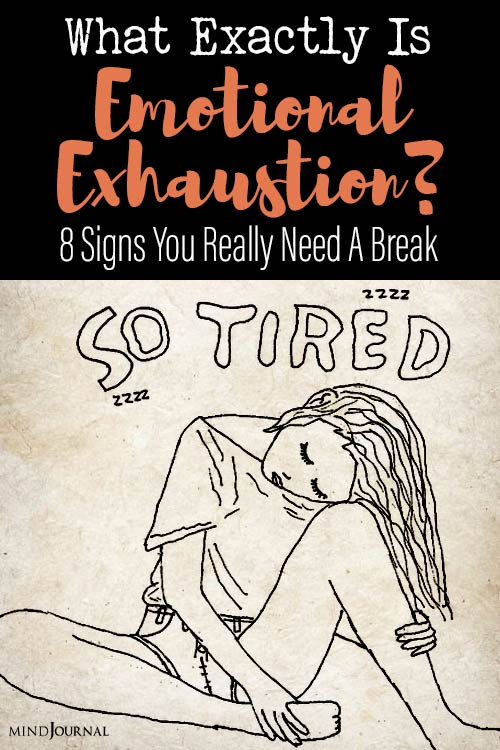
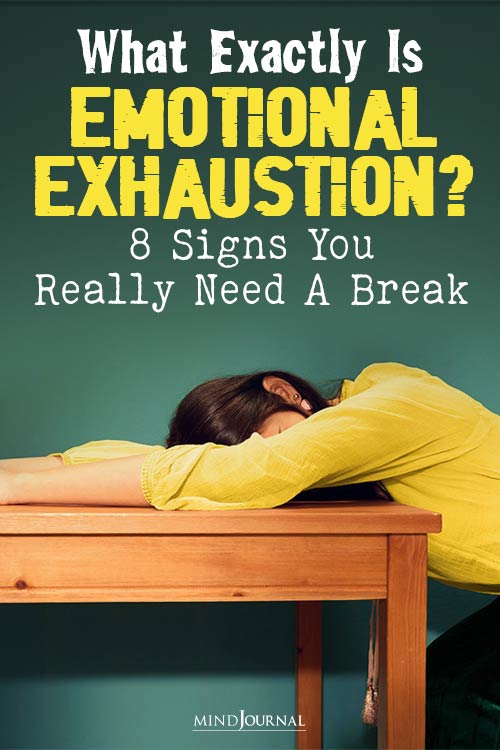
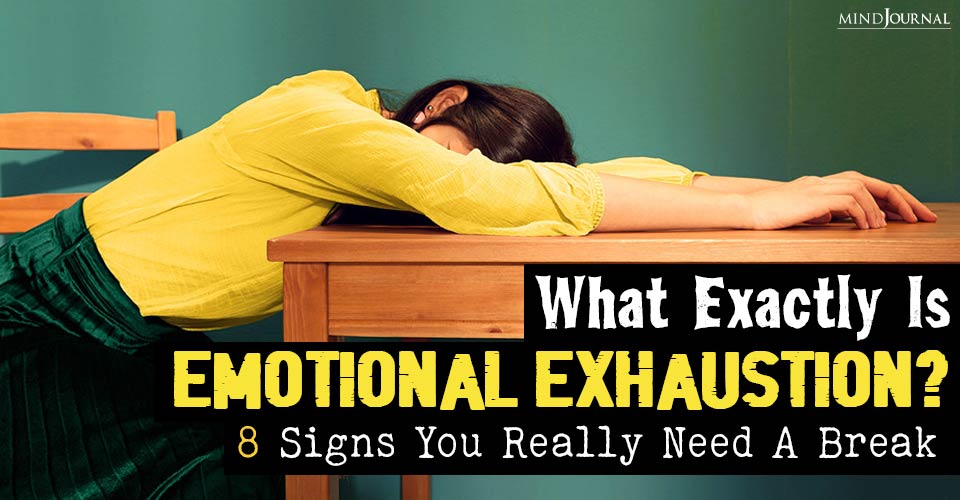







Leave a Reply
You must be logged in to post a comment.